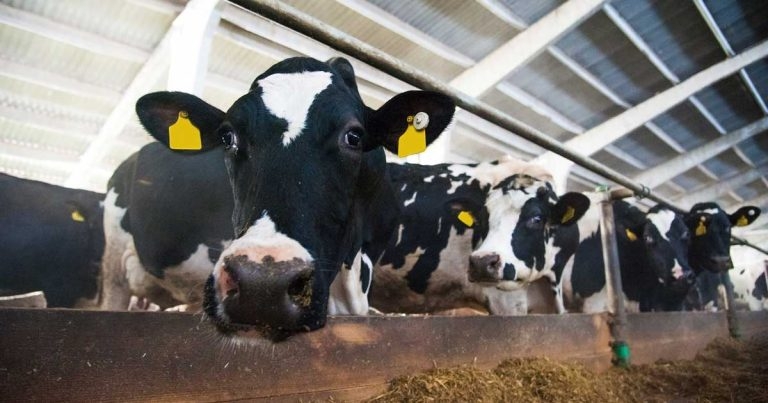21 Aug 2023
Group has urged ministers to introduce a minimum gate price, which it argued could help to protect UK food security against unsustainable production costs.

Image: © SGr / Adobe Stock
A group of farm vets has called for government action amid fears that falling milk prices could accelerate the trend of producers leaving the sector altogether.
The VetPartners delegation has urged ministers to introduce a minimum gate price, which it argued could help to protect UK food security against unsustainable production costs.
Farmers’ leaders argue that progress is being made, following the announcement of government plans for new rules in the area.
But VetPartners farm director Ian Cure said the problem was already damaging both the dairy industry and the wider rural economy.
He said: “We have already seen many farmers leave the sector for economic reasons.
“Food security for this island nation is paramount, and I believe we must take action now to prevent more farmers leaving the industry.
“Minimum milk pricing to the cost of production is the least we owe them and is vital to ensure the survival of these businesses and our country’s ongoing food security.”
He also warned that producers feared the potential for further damage to their businesses following recent import trade deals with countries such as Australia.
Government figures show the average UK gate price for milk was 36.48 pence per litre (ppl) in June, down 16 per cent on the same month last year.
The Agriculture and Horticulture Development Board has also warned of the potential for further pressure on prices going into autumn, because of reportedly weak demand.
But, although Defra said gate prices are still above the five-year average, the VetPartners group said industry estimates place the current cost of production at between 40ppl and 45ppl, making it unsustainable for many farmers.
Vets are now adding their voices to a letter, originally drafted by Westpoint Farm Vets clinical director Jack Balkham, urging MPs to engage with the issue and support the idea.
Mr Cure said processors and supermarkets should bear a “fair share” of the burden caused by rising production costs, and said the Government’s wider economic priorities should not prevent it from acting to support producers.
He said: “Farmers that we work with have always and will always prioritise the health and welfare of their cows, and strive to produce fantastic local food for our country.
“We understand the Government’s position in trying to reduce inflation, [but] this must not be at the expense of farmers.”
The concern has also been echoed by the BCVA, which argued farmers should be properly paid to meet the welfare and quality requirements imposed on them.
The group’s president, Colin Mason, said: “UK customers expect the highest welfare and health standards, and we work alongside our clients to achieve that – consequently, we need to make sure we are investing appropriately and paying our food producers to create the best environments for the animals in their care.”
In response, the Government’s farming minister Mark Spencer said: “Farmers must be paid a fair price for their produce and that’s why I am introducing regulations this autumn to make sure supply contracts in the dairy sector are fair and transparent, meaning farmers can challenge prices or raise concerns with contracts more easily.
“This represents a key milestone in our commitment to promote fairness and transparency across food supply chains to support farmers and build a stronger future for the industry, and will be followed by reviews into the egg and horticulture sector supply chains.”
The planned rule changes were originally announced at last month’s Great Yorkshire Show and have been welcomed by both the National Farmers’ Union (NFU) and the industry body, Dairy UK.
At the time of the announcement, NFU dairy board chairperson Michael Oakes described the measures as a “significant step forward” for fairness in supply chains.
He said: “For a long time, unfair milk contracts have held British dairy businesses back, and these changes will give dairy farmers much needed business security and confidence, as well as helping to share risk along the dairy supply chain.”
Meanwhile, Dairy UK said the measures, which are expected to be introduced in the form of a statutory instrument that does not require fresh legislation, would balance the needs for transparency and competitive flexibility.
But Dr Balkham remains sceptical about whether the plans, which he regards as “severely lacking in detail and substance”, will deliver the change he and his colleagues believe is urgently needed.
He added: “While, in theory, they sound like a step in the right direction, it is clear that the onus is being placed on the farmers themselves. ‘Enabling farmers to challenge’ prices and contracts alone is not likely to be a solution to the current problem.”